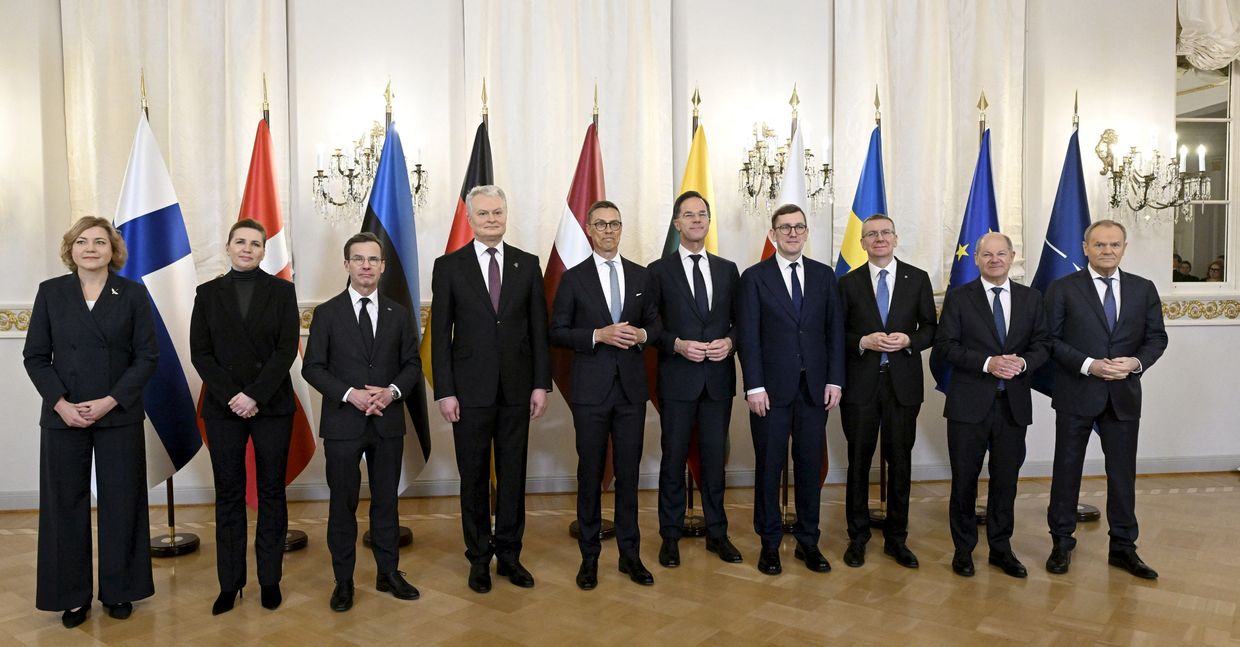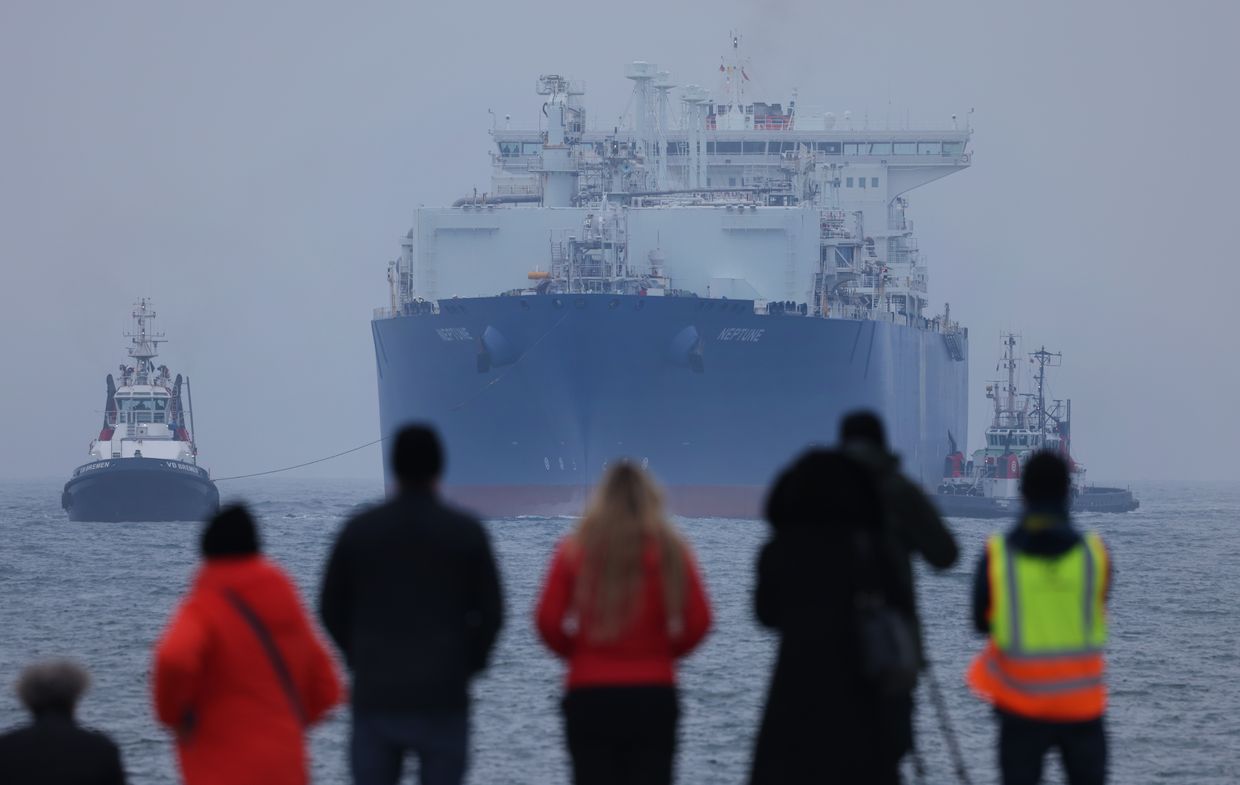The European Union and NATO must strengthen cooperation to protect critical energy infrastructure from attacks, which pose a growing threat to European stability. The Kremlin, with its history of weaponizing energy, remains a prime suspect. NATO must properly secure the Baltic Sea — the so-called NATO lake.
The Baltic states achieved independence from the post-Soviet energy system in February by connecting to the continental grid via Poland. However, this transition is being overshadowed by a series of incidents in the Baltic Sea, underscoring the urgent need to secure the energy bridge from Poland, known as the LitPol Link. Poland and the Baltic states are ramping up their preparations.
Energy ministers from the Baltic states and Poland discussed preparations on Jan. 24 for the synchronization scheduled for Feb. 8-9. They announced plans for joint protection of the infrastructure required for this effort, following multiple incidents in the Baltic Sea. The synchronization will proceed without relying on the Estlink 2 cable, which was damaged in one of these incidents.
The meeting in Riga focused on finalizing preparations for synchronization and strengthening the resilience of critical infrastructure. “The damage to the Estlink 2 power cable connecting Finland to Estonia has not impacted the ability of the Baltic states to safely disconnect from the Belarusian and Russian energy system and connect to the European grid,” the ministers concluded.
Analyses indicate that the Baltic states have sufficient cross-border capacity through Estlink 1, NordBalt, and LitPol Link to synchronize with Europe without relying on Estlink 2. Synchronization entails disconnecting the Baltic states from the post-Soviet BRELL system — which will continue to include Belarus and Russia — and adapting Baltic energy systems to operate on the continental frequency.
The LitPol Link power connection, running through Poland, will facilitate this transition. Synchronizing with the continental grid will eliminate energy exchanges with the BRELL system. This move is particularly significant for Kaliningrad Oblast, which will become an energy island — just as the Baltic states would have been if disconnected from BRELL without European synchronization.
“The resilience and protection of infrastructure have never been more important.”
However, we cannot be sure that other parts of the critical infrastructure needed for a successful disconnection from the post-Soviet system are safe from malign activity. The Baltic states and Poland are enhancing the security of LitPol Link and other critical infrastructure elements to protect the synchronization process.
“The resilience and protection of infrastructure have never been more important. The Russian Federation is deliberately destroying Ukraine’s power grid, and its hybrid activities in the Baltic Sea underscore the importance of a well-secured energy system for defense,” said Krzysztof Bolesta, state secretary at Poland’s Ministry of Climate and Environment.
Poland is also taking lessons from another energy bridge to Lithuania, known as Harmony Link. Rising costs and security considerations led Polish and Lithuanian operators to plan Harmony Link as a subsoil cable instead of the originally proposed sea route. Land-based infrastructure is easier to secure and — more importantly — can be repaired faster. If sabotage damage can be repaired within a few weeks, the act of sabotage loses much of its impact. That is why the news that Finnish telecom company Elisa managed to repair two undersea cables in about two weeks was so encouraging.
Another type of threat is emerging as well. Baltic operators have reported the spread of disinformation regarding the synchronization of their energy systems with Europe. “We urge the public to critically evaluate information, resist emotional opinions, and refrain from spreading unverified reports,” participants of the Riga meeting emphasized. Beyond spreading fear, the enemy may be attempting to promote a false economic narrative — that disconnection from BRELL would significantly increase electricity costs.
That narrative is false. According to a study conducted during the preparations, the average increase in energy prices for consumers with an average consumption of 140 kWh per month would be minimal: 50 cents per month in Lithuania, 60 cents in Estonia, and around one euro in Latvia. Relatively speaking, this is not a heavy impact. In return, the Baltic states gain energy independence from the Russian operator and market coupling with Europe, which promotes price decreases.
Energy system operators in Poland and the Baltic states have been instructed by their governments to implement an urgent package of measures to enhance the security of critical energy infrastructure. Lithuania’s Interior Ministry expedited the strengthening of the LitPol Link cable’s protection, advancing the timeline from April to Jan. 15 in response to the severing of the Estlink 2 cable between Finland and Estonia on Dec. 26, 2024.
Poland is also taking action. “Polish Transmission System Operator (PSE) ensures the protection of transmission infrastructure within the Republic of Poland’s territory. The company collaborates with relevant national services and institutions, as well as transmission system operators in neighboring countries,” PSE stated in a comment for the Energy Drink podcast.
“Since Russia’s invasion of Ukraine, a state of heightened readiness has been in place, and the infrastructure is continuously monitored, with particular attention given to interconnections with Lithuania, Sweden, and Ukraine. New measures to enhance physical security are also being implemented.”

PSE reports ongoing collaboration with operators in Lithuania, Latvia, and Estonia to strengthen regional infrastructure protection. “Discussions are underway about launching joint projects in this area and securing EU funding for them,” the statement adds.
The increasing frequency of attacks on critical infrastructure — such as the recent incident involving the undersea cable between Latvia and Gotland — highlights the difficulty of attributing blame in a complex and interconnected world. Scandinavian media reports suggest it could have been an accident.
However, there have been too many such “accidents” since Russia’s unlawful aggression against Ukraine began. The West needs to take the initiative and stop retreating. The EU and NATO must develop new tools and strategies to address these challenges and protect collective security — especially in the Baltic Sea, which must be properly secured as a NATO-controlled waterway.
Editor’s Note: The opinions expressed in the op-ed section are those of the authors and do not necessarily reflect the views of the Kyiv Independent.
Europe must act on Russian LNG before Trump makes it impossible
Europe’s window to ban Russian liquefied natural gas (LNG) is closing faster than we think. As a second Trump administration takes shape, Europe’s opportunity to impose new, meaningful measures on Russian fossil fuels is rapidly diminishing. U.S. President Donald Trump’s plan to end the war alleged…



